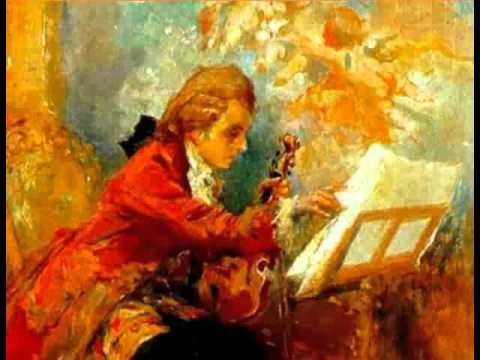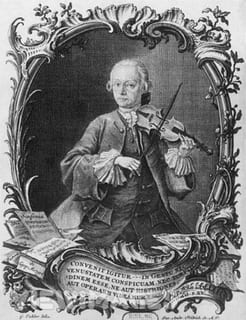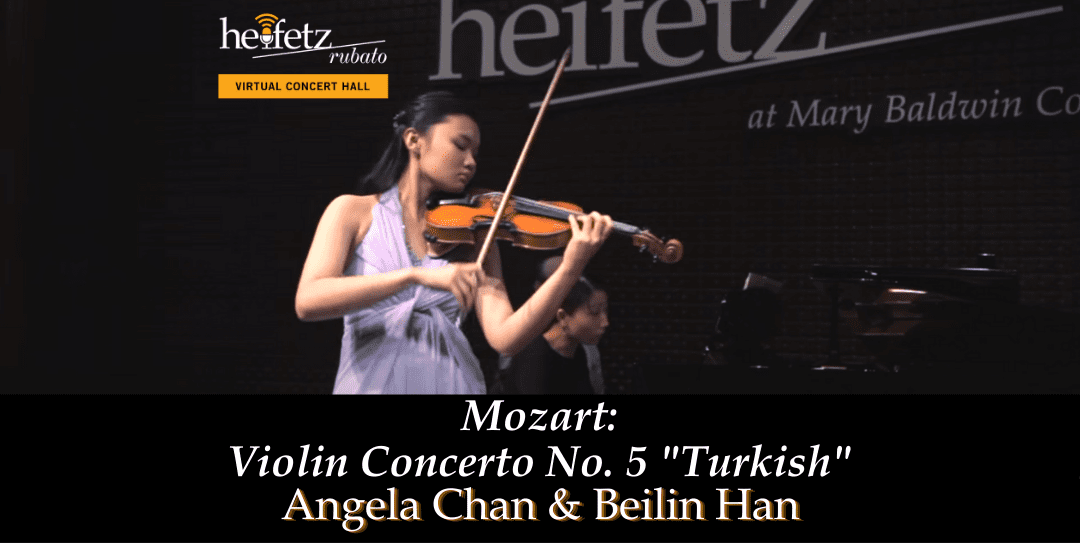Video of the Week:
A Marvelous Mozart to Introduce our 2021 Summer Season View All Videos of the Week“Many people do not even know that you play the violin, since you have been known from childhood as a clavier player.”
Leopold Mozart in a letter to his son Wolfgang, October 18, 1777
Writer Gabriel Banat puts it this way: “To his contemporaries, Mozart was both a performer and a composer. For posterity, his genius as a composer overshadowed his image as a performer, just as his fame as a pianist caused everyone to forget that he once played the violin.”
“In fact, he played the violin from the age of six…[and] it remained an important part of his life until the age of 24, when he stopped playing it altogether.”
As you’ll witness below, Mozart had quite a flair for writing for – and presumably playing – the fiddle. After all, his father Leopold had authored one of the definitive textbooks on the art of violin playing. And Mozart’s first official job in the court of the Archbishop of Salzburg was as the Konzertmeister in the court orchestra.



Cover page to Leopold Mozart’s “Treatise on the Fundamental Principles of Violin Playing.”
So why did Amadeus up and quit the violin? No one knows for sure, but it may well be that he was afflicted by the same malady that affects many a young violinist to this day: He hated to practice! When Mozart went on an extended tour of Europe playing the five violin concertos he had just written, his father wrote wistfully to him that “I feel a bit melancholy when I go home, for as I approach the house, I always imagine I shall hear the sound of your violin going.” It’s quite possible that without his father around, Mozart was less inclined to keep his “violin going,” for admonishing his son to practice, practice, practice, is a constant refrain in Leopold’s letters!
As we prepare to introduce you to the Stars of Tomorrow in our 2021 Festival Concerts, we look back to the 2015 Heifetz Institute, when violinist Sin Ying (Angela) Chan – the same age that Mozart was when he wrote the piece – demonstrated that she had spent plenty of time in the practice room, with this marvelous performance of the opening movement of Mozart’s “Turkish” Concerto No. 5. That practice is certainly paying off now, as she is one of seven Heifetz alums to be named quarter-finalists in the 2021 Shanghai Isaac Stern International Violin Competition. She is accompanied by Beilin Han, who will return to serve as the Piano Faculty Coordinator for our 2021 summer program.


